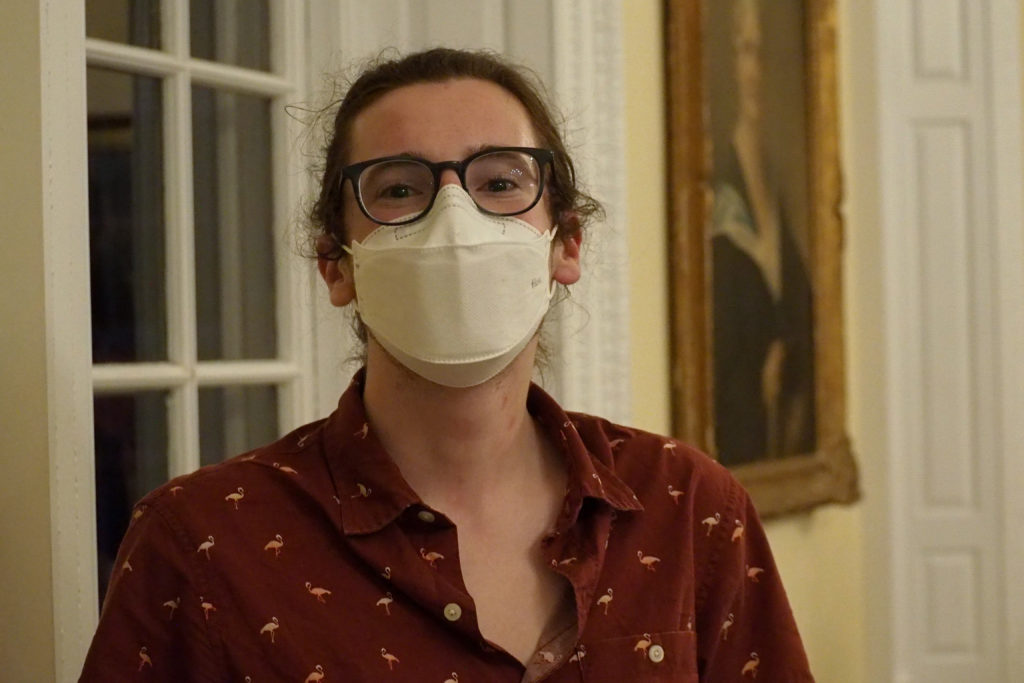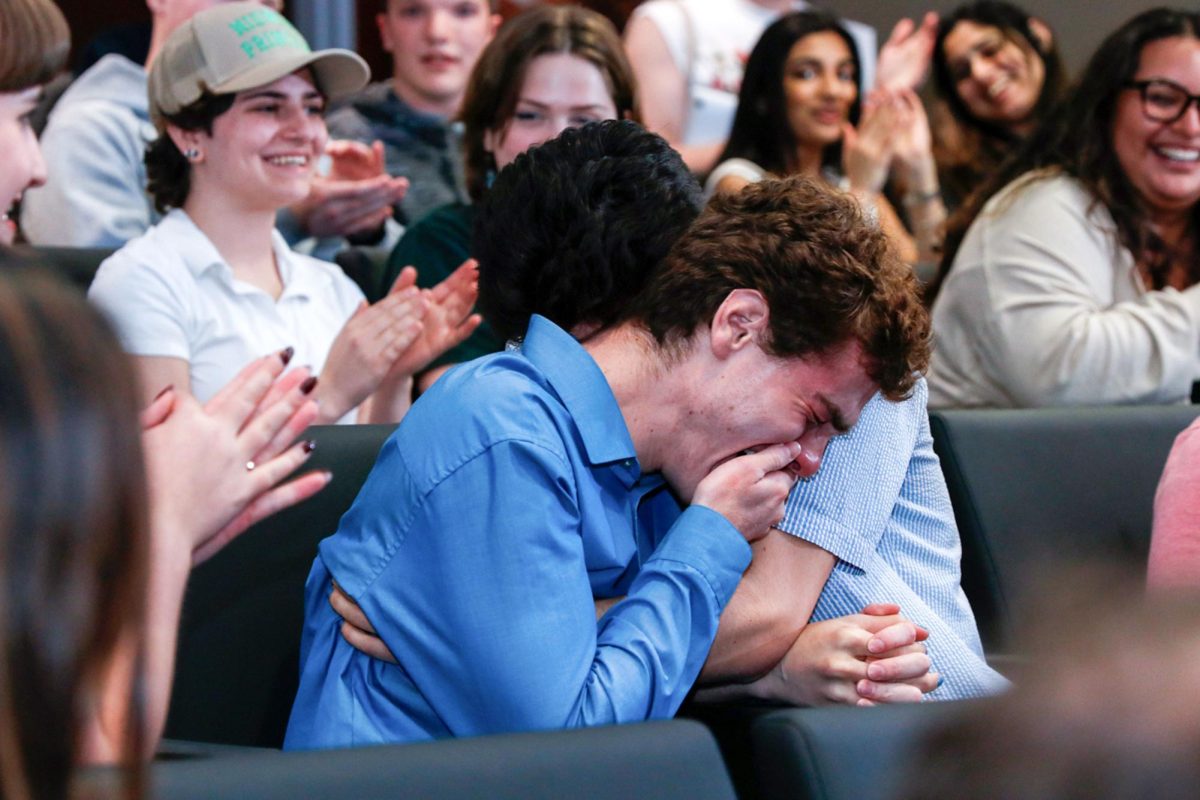The Student Association Senate approved holding three referenda Monday that could bring major changes to future senate elections if passed by the student body.
Students will soon vote on three constitutional amendments to establish first-year senate seats, change multi-seat senate races from ranked-choice voting to a plurality system and divide at-large senate positions into separate undergraduate and graduate seats. Members of a special elections committee, which will be appointed by SA President Brandon Hill and confirmed by the senate, will determine the date for the referenda vote within 20 class days of Monday’s senate action.
The First-Year Senators Amendment Act calls a referendum asking students if the SA should hold elections for first-year senators each fall, which would go into effect this semester if passed. The referendum would amend the recently updated SA constitution, which prohibits reserved seats for first-year senators, although freshmen can still be appointed to vacant University at-large seats.
If students pass the referendum by majority vote, a special elections committee will organize a fall election for first-year, at-large graduate and undergraduate senator seats as soon as possible, according to the legislation. SA Sen. Chris Pino, CCAS-U and the sponsor of the legislation, said if the referendum passes, the subsequent election would be restricted to first-year undergraduates, graduate and transfer students to elect the new senators.
“None of these students receive representation until a full year into their studies, which is preposterous,” Pino said at the meeting.
Pino proposed a similar resolution at the last senate meeting, but the move failed. At this week’s meeting, the resolution surpassed the two-thirds majority needed for passage with 30 votes in favor, three opposed and five abstentions.
Pino said he collaborated with members of the Student Court, the executive cabinet and other senators to ensure this resolution could be executed constitutionally, adding that he was “elated” for the chance to give first-year students a voice in the senate.
“I’m so excited that first-year students at GW will potentially get to have the voice within our senate again,” Pino said. “This is a really important issue, and I’m so glad that it’s going to battle again.”
Hill, the SA president, voiced opposition to the resolution over concerns about potential low turnout for the referendum vote, which would enable a small portion of students to amend the SA constitution. He said he was prepared to seek the Student Court’s opinion on the amendment.
“This is not about my alleged hate for first-year students, as I too was a first-year student when I got involved in the SA, but it’s about our dire need for legitimacy and student input,” Hill said at the meeting.
SA Sen. Charlene Richards, CCAS-U, said first-year students deserve a seat in the senate because they pay the SA fee, a $45 charge every undergraduate student pays as part of their costs of attending GW. As a former first-year senator, Richards said she understands how the seats provide a platform for first-year students to bring their concerns to someone in their class.
“Let’s not forget that first-year students still have to pay the Student Association fee, yet they receive no direct representation in choosing who makes those decisions to allocate SA funds and budget,” Richards said.
Senators also unanimously voted to call another referendum asking students whether the SA should implement a plurality voting system for senate races with multiple seats rather than ranked-choice voting. If the referendum passes, students would be able to vote for multiple candidates up to the number of seats available in those races.
Senators unanimously passed the Fall Senate Elections Act, which would codify the two referenda into the SA’s bylaws if they are passed by the student body.
SA Sen. Cordelia Scales, SEAS-U and the senate chairperson pro tempore, said she supported the switch to plurality at-large voting because it works better for multi-seat elections, adding that the wrong form of ranked choice voting was used in her senate election last year and resulted in inaccurate results.
“I was part of the race that was recalled last year because they used the wrong form of ranked-choice voting,” Scales said. “If we had plurality voting, we probably would have not had that mess up.”
The senate also unanimously approved the Proportional Representation Act to call a third referendum that would divide at-large senate positions for the Milken Institute School of Public Health, School of Nursing, School of Medicine and Health Science and the College of Professional Studies into separate undergraduate and graduate positions.
At the meeting, SA Vice President Kate Carpenter also announced three recent senate resignations.
SA Sens. Onyinye Ijeh, G-At-Large, Jovawn McNeil, ESIA-U, and Charlotte Gaynor, SEAS-G, all resigned within the last two weeks, Carpenter said. The senate is now left with four total vacancies after former SA Sen. Adam Synder, MIPH-U, resigned last month.
Ijeh, an Elliott School of International Affairs student, said she resigned from her seat because no one notified her she would be nominated to the senate until the day of her confirmation. She said she was rejected by the governance and nominations committee over the summer, so she made different plans for the upcoming school year.
“I just didn’t really understand what was happening,” Ijeh said in an email. “I was denied earlier in the summer and had made other plans (I now have a full time job) and so would not be able to balance SA, school and my work schedule. I’m really grateful for the opportunity but I would not be able to commit as fully as I would like to.”
Gaynor said she works full time as a middle school teacher and no longer has enough time to dedicate to the SA.
McNeil declined to comment.
The senate also confirmed second-year law student Devin Eager as a Student Court justice, filling the last vacancy on the seven-person bench.








